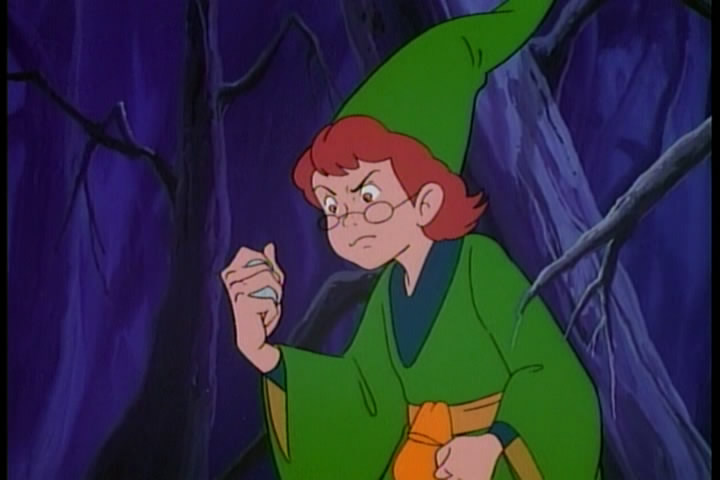Empath Negative
First Post
Going back to my frustration and rage and boundless fury concerning the Spirit Shaman class...
Stop and think of how awesomesaucemly they could've fleshed this character class out. It's the same with a lot of the more iconic aspects of D&D.
Why is it just about every wizard is a variation of this guy:

They don't bother to even start to get "iconic" until you get things like the Dread Necro, Warmage, Beguiler and so forth... and then they just get weird.
What WOULD be an awesome Enchanter chassis... finds traps? GTFO homeslice.
Some of the variants address this to some extent, such as the specialist wizard enchanter variant that gives you "social skills" in exchange for feats and a cohort, etc etc.
For example, take above Spirit Shaman. Imagine how badass it would be at level 16 to have a permanent "Foresight" effect... as cast by the "Spirit Guide" on the Shaman. The Shaman wouldn't get the great mechanical benefit but it would get an amazing roleplaying hook, with the DM periodically giving the Shaman useful info just out of the blue.... "Your Spirit Shaman conveys to you that it may be unwise to pull that leevar".
Stop and think of how awesomesaucemly they could've fleshed this character class out. It's the same with a lot of the more iconic aspects of D&D.
Why is it just about every wizard is a variation of this guy:

They don't bother to even start to get "iconic" until you get things like the Dread Necro, Warmage, Beguiler and so forth... and then they just get weird.
What WOULD be an awesome Enchanter chassis... finds traps? GTFO homeslice.
Some of the variants address this to some extent, such as the specialist wizard enchanter variant that gives you "social skills" in exchange for feats and a cohort, etc etc.
For example, take above Spirit Shaman. Imagine how badass it would be at level 16 to have a permanent "Foresight" effect... as cast by the "Spirit Guide" on the Shaman. The Shaman wouldn't get the great mechanical benefit but it would get an amazing roleplaying hook, with the DM periodically giving the Shaman useful info just out of the blue.... "Your Spirit Shaman conveys to you that it may be unwise to pull that leevar".


